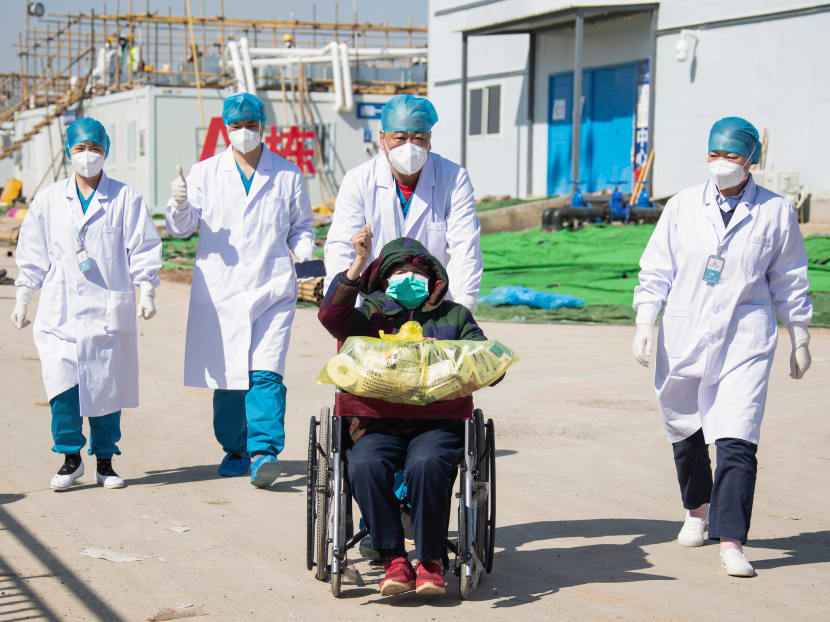Covid-19: Wuhan to quarantine all cured patients for 14 days after some test positive again
HONG KONG — The authorities in Wuhan on Saturday (Feb 22) introduced 14 days' mandatory quarantine for recovered Covid-19 patients, after some discharged patients again tested positive.

A recovered patient is discharged from Leishenshan Hospital in Wuhan in China's central Hubei province on Feb 18, 2020.
HONG KONG — The authorities in Wuhan on Saturday (Feb 22) introduced 14 days' mandatory quarantine for recovered Covid-19 patients, after some discharged patients again tested positive.
From Saturday, all patients who had recovered and been discharged had to be sent to designated places for two weeks of quarantine and medical observation, the city's coronavirus treatment and control command centre said on Weibo, China's equivalent of Twitter.
Wuhan and the rest of Hubei province, of which it is the capital, have continued to account for the vast majority of confirmed coronavirus cases in mainland China, where about 77,000 have been infected and more than 2,400 have died.
The new quarantine arrangements came after Chinese medical experts on the front line of the battle to contain the outbreak warned that recovered patients may still carry the virus and be contagious.
Dr Zhao Jianping, a doctor heading a team working in Hubei, said on Thursday that there had been cases in which patients tested positive after they had seemingly recovered.
"This is dangerous," Dr Zhao was quoted as saying by Southern People Weekly magazine. "Where do you put those patients? You cannot send them home, because they might infect others, but you cannot put them in hospital because resources are stretched."
Researcher Xiang Nijuan from the Chinese Centre for Disease Control and Prevention was on Friday quoted by state broadcaster CCTV as saying that monitoring of those who have had close contact with patients should be expanded to a wider pool of people, because some patients had been contagious two days before the onset of their own illness.
In the southwestern city of Chengdu, a patient initially discharged on Feb 10 after meeting the standard for having recovered, was readmitted to hospital nine days later when they tested positive again during a check-up.
In another case in Changde, a city in Hunan province in central China, a woman tested positive on Feb 9, five days after she was released from quarantine at a local hospital having tested negative in two previous laboratory tests.
Meanwhile, in the southern city of Guangzhou, the coronavirus was found in stool samples from a small number of discharged patients, South Metropolitan Daily reported on Saturday.
"It may be that there are still viruses or viral gene fragments in the discharged patients," Dr Cai Weiping, head of the infectious diseases department at Guangzhou No 8 Hospital, was quoted as saying. "It is not yet certain whether they are infectious. This is a new pathogen, and we don't yet have a perfect process to understand it."
But examples of this could not be classed as relapses, Dr Cai added, since CAT scans showed that the discharged patients' lung inflammation was receding.
In China, patients can be discharged if they meet four criteria: body temperature returning to normal for more than three days; respiratory symptoms improving significantly; chest CAT imaging showing significant improvement in the lungs; and negative results in two nucleic acid tests at least one day apart. SOUTH CHINA MORNING POST









